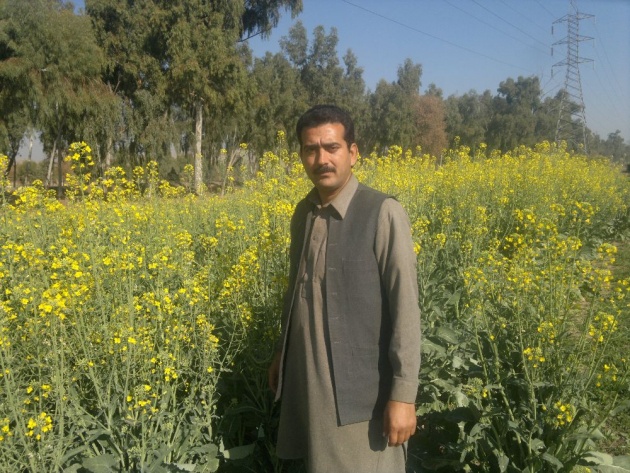Canola is a genetically altered and improved version of rapeseed that was developed for its superior edible oil and high value meal. The term “canola” can only be applied to those varieties that produce less than 2 percent erucic acid. Canola oil is lower in saturated fats than any other vegetable oil, making it a popular choice among health-conscious consumers. Canola meal, the portion of the seed left after the oil is extracted, is of value as feed for livestock. Another potential use for canola is as annual forage. (University of Kentucky College of Agriculture)
Some major oilseed crops grown in Pakistan include cottonseed, rapeseed, mustard, canola, sunflower, safflower, groundnut and sesame. A significant amount of edible oil is extracted from cottonseed that is a fabric crop but not an oilseed. Edible crops like rapeseed, mustard and groundnut are indigenous and have been cultivated for centuries.
Per acre yield of traditional crops is significantly lower due to poor seed quality, inappropriate cultivation techniques and reduced potential yield of cultivars. On the other hand, sunflower, soybean and sesame are non-traditional crops and crop cultivars have higher potential yield.
Cultivation of oilseed crops is essential for steady supply of edible oil and to reduce imports. Edible oil is the fifth largest import item and its share in total imports is 3.6 per cent, which was 5.3 per cent a decade back. As a whole, Pakistan spends around Rs50 billion per annum on export of edible oil. The country imports palm oil from Malaysia, Norway, Singapore and South Korea and soybean oil from Malaysia, Argentina, Singapore and Switzerland.
In 2004-05, Pakistan imported palm oil worth $477.7 million against $464 million the previous year. Similarly, $49 million were incurred on the import of soybean oil in the same period. The demand for edible oil is increasing.
The total availability of edible oil in 2003-04 was 2.437 million tons with the share of local production at around 0.740 million tons which was 30.4 per cent of the total national requirements and 1.693 million tons was imported that constituted 69.6 per cent share. Edible oil is either imported or extracted from the imported seed. About 1.333 million tons of edible oil was imported in kind in 2003-04 while 0.114 million ton was extracted from the imported seeds.




